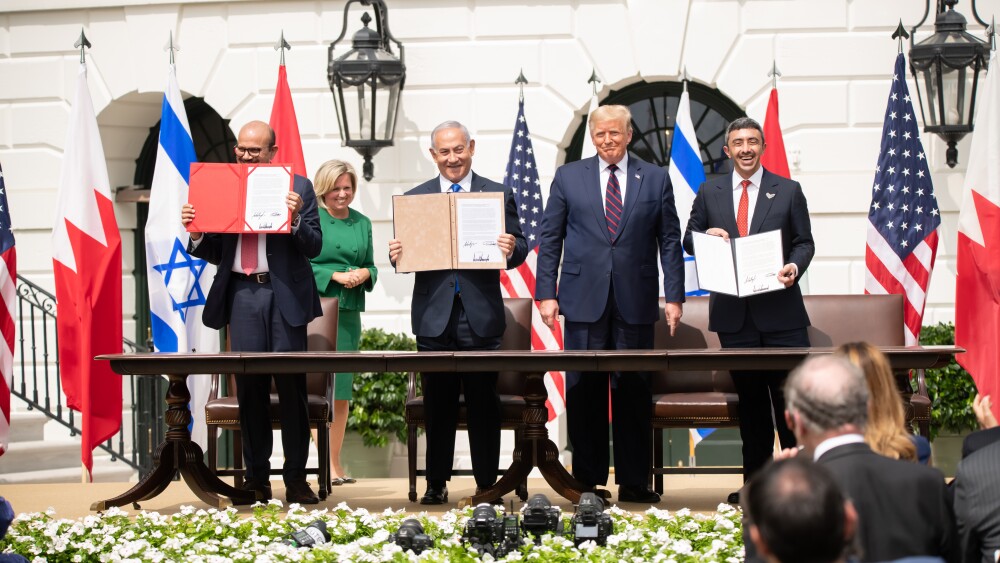On September 15, 2020, the foreign ministers of Bahrain and the United Arab Emirates joined US President Donald Trump and Prime Minister Benjamin Netanyahu at the White House. On a balcony overlooking the South Lawn, they envisioned a region transformed.
UAE Foreign Minister Abdullah bin Zayed predicted that the accord’s “reverberations will be reflected on the entire region.”
“For too long, the Middle East has been set back by conflict and mistrust, causing untold destruction,” lamented Bahrain’s Foreign Minister Abdullatif al-Zayani.
Exactly five years later, bin Zayed was at a different gathering — one that underscored how little the Middle East had changed. Coming together last week in Qatar in the aftermath of a failed Israeli strike on Hamas’s leaders, senior officials from nearly 60 countries — including Israel’s archenemy Iran, and the three countries that normalized relations exactly 5 years before — issued a joint statement from the summit urging “all states to take all possible legal and effective measures to prevent Israel from continuing its actions against the Palestinian people,” including “reviewing diplomatic and economic relations with it, and initiating legal proceedings against it.”
Read the full article at the Times of Israel.








